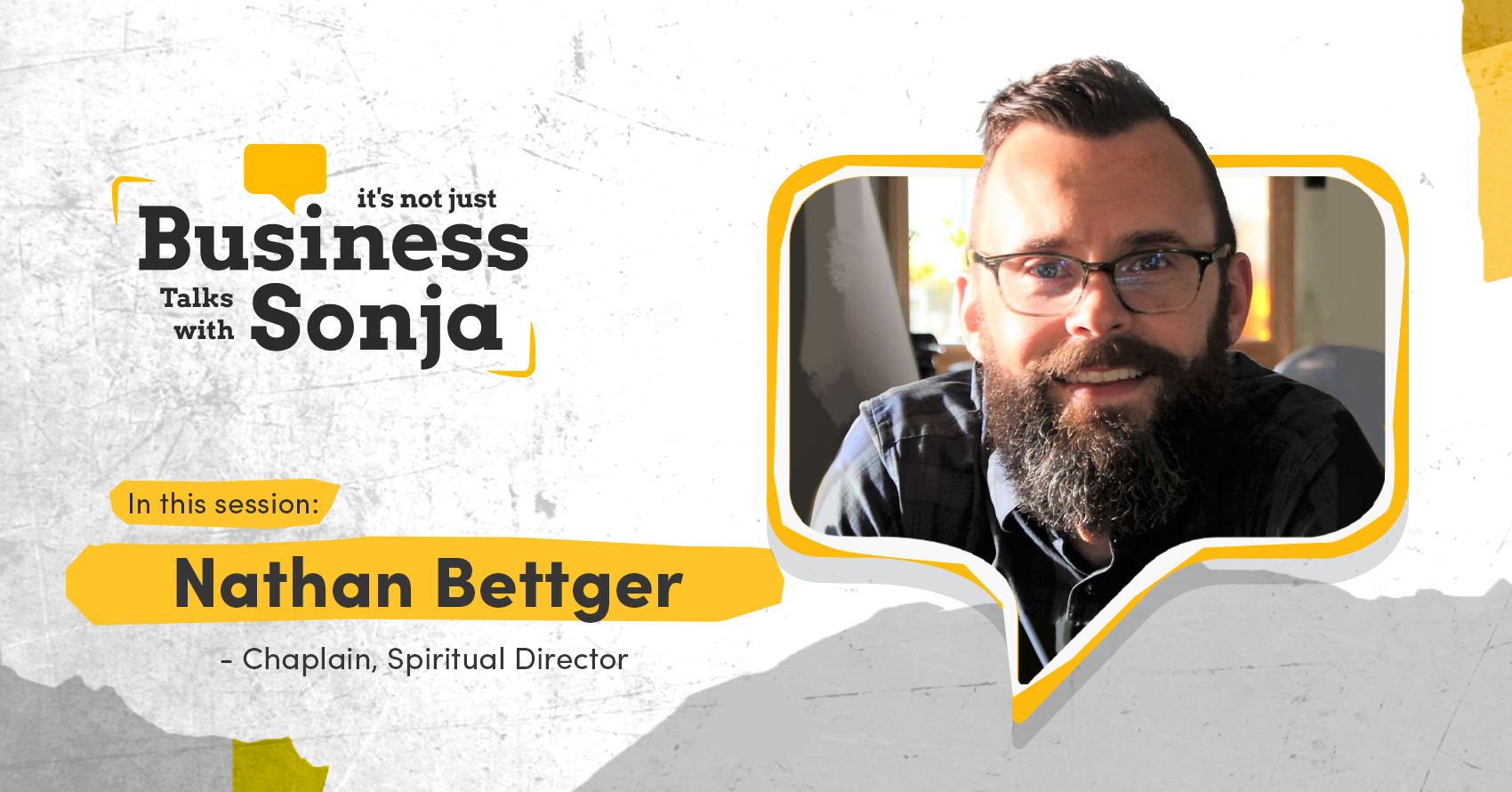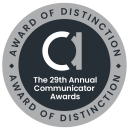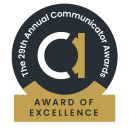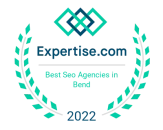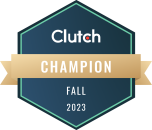Nathan Bettger is a board-certified hospital chaplain and spiritual director from Oshkosh, WI, where he lives with his wife (Kat), his two sons (Brendan Arthur and Owen Raine), his welsh terrier (Wendell), and Brendan’s service dog, Harley.
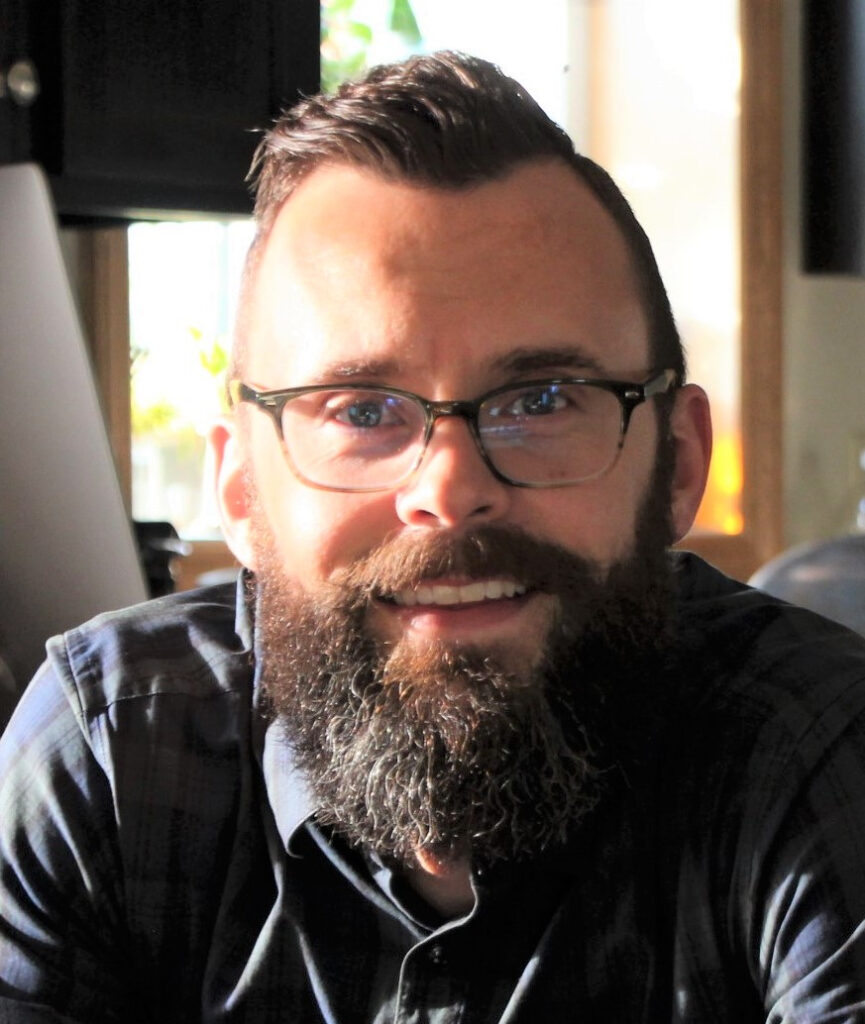
Nathan is committed to nurturing connection and community through our relationships, our bodies, our sense of self, the land that we live on, and our experience of the Divine. Deeply grounded in contemplative and mystic Christianity and nature-based spirituality, Nathan seeks to consistently invite others into more unitive and loving life, whether it be through spiritual companioning, caring for those in the hospital, advocating for more natural earth keeping, caring for his honey bees and his native wildflower garden, or writing.
Nathan has led community groups for many years focused on spiritual integration, conversations on death and dying, grief support, and men’s spirituality. He is also particularly passionate about living within our limits and frailty, being a parent of a son with Duchenne Muscular Dystrophy and walking alongside patients every day through their diagnoses, their loss of ability, and their illness.
He received his Masters in Divinity from Bethel Seminary in St Paul, MN and Certificates of Spiritual Formation and Spiritual Direction from George Fox Seminary in Portland, OR. Nathan served on the founding board for the men’s spirituality non-profit, Illuman and is a graduate scholar of the Orphan Wisdom School, led by teacher, storyteller and author, Stephen Jenkinson.
Here’s a Glimpse of What You’ll Learn:
- Who Nathan Bettger is
- The way that grief affects people
- Not everything that hurts is bad
In This Episode:
In this episode of It’s Not Just Business Talks with Sonja, we get to meet Nathan Bettger, a spiritual director and hospital chaplain. Through Nathan’s work, grieving families have found ways to cope with loss.
Grief is a powerful force, but it doesn’t have to be negative. Nathan has shown us that there is something good that can come from pain and suffering; that we should not be afraid to hurt because it means that we are alive.
Bettger’s work is important because it gives us a glimpse into the various ways we lose people and how grief affects us. He has shown that not everything that hurts is bad, and by understanding the grieving process we can better support those who are going through it. His work allows us to see the beauty in life, even after tragedy.
Resources Mentioned in This Episode:
- Bethel Seminary
- George Fox Seminary
- Can-Do Canines
- Stephen Jenkinson, Grief Support
- Beth Patterson, Grief Support
- NateBettger.com
Sponsor for This Episode:
This episode is brought to you by zo agency, a tight-knit team of online and offline marketing pros.
At zö, we serve as the marketing department for small to mid-sized businesses.
We know that marketing and advertising can be demanding and time-consuming — that’s why we make the process so easy-breezy that you don’t have to sacrifice precious time to get the results you need.
To learn more, visit zo.agency or call (541) 633 4725.
00:01 Sonja: Okay. I’m here today with Nathan Bettger, board-certified hospital, chaplain and spiritual director from Oshkosh Wisconsin, where he lives with his wife, Kat, his two sons, Brendan Arthur and Owen Ring, his Welsh Terrier, Wendell, and Brendan’s service dog, Harley – We’ll talk about Harley too. He received his master’s in divinity from Bethel Seminary, in St. Paul, Minnesota, and certificates of spiritual formation and spiritual direction from George Fox Seminary in Portland, Oregon. Nathan served on the founding board for the men’s spirituality, nonprofit. Illumine. Am I saying that right? And is a graduate scholar of the Orphan Wisdom School, led by teacher, storyteller, Stephen Jenkinson. There’s a lot packed in there, Nathan, I’m excited to unpack it. How are you, my friend, it is great to see you.
Nathan 00:57 It’s good to see you, good to be with you.
Sonja 1:00 Beautiful smile. Uh, in this I’ve known, I’ll just preface this by saying I’ve known you for many years and been a great fan and friend, uh, especially a follower of your bees and your boys. Those are my two favorite things in your world, half the time. But, um, the reason why we connected today is cause you’re just having an enormous story and I have lots of questions as always. I’ve always been the one that asks a lot. Um, and the first thing I just want to dive into, because, you have a service dog named Harley, I have not yet met. Um, tell us a little bit about why you have a service dog for your son.
Nathan 1:31 Yeah. So we have a service dog because Brendan, uh, my oldest is 10 has, uh, uh, a form of muscular dystrophy called Duchenne. Uh, and he is in a power wheelchair. Uh, and, um, yeah, the dog is, I mean, the dog is there to help him with things really. Um, He’s not able to walk. Uh, and in fact, is going in for surgery, um, just this next week, for some surgery on his tendons, in his ankle. So, Harley came to be with us about a month ago, um, from a nonprofit called Can-Do Canines in Minnesota. Um, and, uh, it’s just been remarkable. She’s fantastic.
Sonja 2:29 Is it sort of, um, what kind of, what kind of work does Harley like is, uh, like a fetch, like a comfort, like, uh, what sort of…
Nathan 2:37 Right. So she’s trained to be a mobility-assist dog, which means, um, So she came to us at two and a half. She did all of her. This is what Can-Do Canine’s does, they train dogs. Um, working with prisons in Minnesota, where the dogs are for the first two years. And then for like the last six months, three to six months, they’ll, they’ll stay at the facility and work with, um, specialized trainers, specifically for clients. So Brandon, so Harley has been trained, um, to do things like, um, hit handicap buttons on doors. Um, uh, when, when they’re going, so he doesn’t have to reach for them. She will get things that he drops and deliver them to his lap, which is extra helpful because things like pen caps or pieces of paper, or even like a phone, or a remote. She’ll um, she’ll pick that up and give it to him. Um, she can open and close doors. Uh, we have little tug ropes on our, on our doors or on the refrigerator, so she can open and close the refrigerator. Um, she can get help. So like if he’s on the other side of the house and he says, “Harley, get help” she’ll run, to find one of us, uh, and bump us in the leg or do whatever she needs to get our attention to go get to go, um, to go back to him.
Sonja 4:09 So the reason why I brought Harley up first, Nathan, is, because, um, I’ve known Brendan since he was. Barely walking and toddling around. And I recall the day that you and Kat, uh, made sort of the discovery slash announcement that he had been diagnosed with Duchenne. And I remember feeling a lot about that as a parent myself, and just imagining what you two must be feeling at that time. And that’s why I brought him up first because you work in an environment where people are grieving and you yourself must have, I’m making the assumption, experienced some sort of grief or shock when you discovered that Brendan was going to be you know, moving into a, you know, at some point a wheelchair and, you know, lose some of his capabilities. How do you, how do you handle that personally as a father?
Nathan 5:16 Well, I mean the first six months are kind of are blur. Um, when I let people know, I had written a few blog posts, um, In reflection, uh, ready to put them out on my website and, um, shared it on Facebook, knowing the tragedy and the devastation. Um, well I felt it obviously, but I called it collective heartbreak because it was such an energetic, um, outpouring. And I knew that these people who cared so deeply for us, were also going to be heartbroken, um, uh, by, by this information. Cause many people, many people knew, Brendan, we were all in the same boat. We didn’t know anything was quote unquote, wrong with him or his genetic code. Um, and so that was a real shock. Um, uh, for us. Ironically, uh, just like a few weeks after, um, after finding out about Brendan, I was going to, I think the first of four teaching sessions with Stephen Jenkinson up in Canada. Um, and Steven had come into my life as a teacher about grief and death and dying. Um, numerous other things. Um, and I was like completely raw, um, completely heartbroken going into this. And, um, I had, um, went to talk to Steven, um, about this. And, you know, he, he talks to a lot of people. So I think he was a little bit suspicious that I was like wanting to talk to him after one of his sessions. And when I told him about my son, I just like broke down and I, I, said “you know, my son’s got this, um, got this diagnosis. It’s really not good. Um, and. Uh, you know, I, I know that, you know, I know that we’ve got this time, like I know that they’re doing research and all these things,” and he kind of like cut me off. And he was like, “you know what, stop with the hopeless shit.” And he’s like, “because it’s not gonna it’s, it’s not, it’s not going to help you in this. ‘And I wrote about this on my site. It’s pretty powerful, um, writing there. Um, but. He said, “what, what is my work to do now is to, um, be a part of making, meaning of all this, um, for him, for us and for the, for our community.” And that’s been something that has really stuck with me as I’ve attempted to verbalize and articulate, uh, What it means to be heartbroken and what it means to be grieving and what it means to live with a conscious awareness of frailty, um, in our current condition as reality, um, something that is, uh, not necessarily welcome, uh, in our world whatsoever.
Sonja 8:48 And yet it’s part of our everyday existence that we’ve sort of try to ward off. But, so how, um, so you wrote blogs as part of your, as part of your processing of creating meaning and um, how many years has this been now? It’s been quite a, quite a while.
Nathan 9:13 Yeah. Maybe like, um, 5.
Sonja 9:18 5. And so, um, is it a daily, is there some part of you that has to feel found or made meaning out of it? Or is that still a daily? Are there still daily waves of sadness or has there been some sort of what you do that people always say grief has, grief has, these stages, You know, and I, I, I understand that there are people saying, you know, anger and bargaining and but That’s for those for some means on Facebook. What’s it really like?
Nathan 9:49 When I, I, I used, so lead grief groups before COVID hit. And, um, when I talk about the stages, um, it, it requires some education for people because the stages are given as like this kind of neat and tidy way of talking to them about, well, first you’re in denial, then you’re angry, and then you try and bargain. And, um, uh, Elisabeth Kubler Ross specifically did research on people who had received a terminal diagnosis. So it wasn’t for family members grieving anyone. It wasn’t for, um, uh, Like a long-term grief. Um, and it wasn’t meant to be like a subsequent series of stages, but that’s what they’ve taken because it’s easy because it’s, packageable because you can,
Sonja 10:42 sure, you can put a meme, you can put it on Facebook and everyone will go. Yeah. Yeah.
Nathan 10:47 So I tell people that, um, bargaining is as much of a stage as ‘I can’t get up in the morning’ stage or anger is as much of a stage as ‘I can only eat chips today’ stage. Like, ‘Netflix isn’t for me today’ stage. Like it ebbs and flows. And sometimes we experience these things simultaneously. Um, for me there’s like, and yeah, it’s like a daily, constant reminder. Of uncertainty, um, of the fact that my life is, um, is not normal and what is, what the heck is normal anyway, like, um, uh, you know, but little things, you know, Brendan can’t really roll over very well in bed. So in the middle of the night, sometimes multiple times a night, I, I hear from his room. “Daddy!” Um, and then I have to like fly out of bed and run into him and it’s like his legs dangling off the bed or he needs some water. Um, and one would think I might get used to something like that or you know, that I have a great attitude about it. Um, but every day I get reminded. Okay, like this isn’t going to change. This is it’s only going to get more, you know, more needs. Um, this is what we’re going to, I’m going to be dealing with, ya, or help or whatever for the rest of my, or his life. Um, so that brings on, um, all kinds of levels of grief, sadness, challenges to accept. Um, frustration.
Sonja 13:06 yeah. It’s and I get you. You mentioned that Steven said cut the hope stuff, but, um, is the only other option. Because for me looking in from the outside, it feels like, you know, when something’s going to just be this way or it’s not going to change or you’re know, like, it feels hopeless. So w you know, how, so how do, how do you cut the hope stuff then, and just live in that space, if that’s really where you’re, where you live?
Nathan 13:36 Yeah, I don’t try. I try not to take away people’s hope. Um, cause it took me a long time. To get to this place. It’s something that it’s something that Stephen Jenkinson talks about often, um, and growing up in the Christian Church and being a hopeful person, um, I tend to want to give up hope, uh, but, If we cling to hope, then we also cling to the other end of the spectrum, which is hopelessness. And we find ourselves in the middle of that. It has to be either or so. Yeah. So letting go of the spectrum entirely and being more hope free is something that I, um, is something that I would, that I try to aspire to. That’s interesting. Um, and if someone’s hopeful, fine, like I’m gonna, I’m not gonna say don’t be hopeful. However, working in the hospital, working with tons of people with terminal diagnoses and, um, and uh, no way out scenarios. Um, I’ve seen what hope does. Uh, to people and their ability to be present to the yeah. To be present to the pain and the difficulty and the potential making meaning of the very present moment, which is the only thing that is real, which is the only thing that transforms us. The future is not real because it hasn’t happened yet. It can’t be real. It can’t be. Um, but if all of our attention is somewhere in the future on something that’s not real, then. What does that say about our ability to really attend to what needs to be attended to right now? So, um, I’m always trying to come back more into the present, and o hold whatever’s going to happen loosely. I think I do have a certain resistance to thinking about the future too much, because I know that, and I should, we should know this for all of us in the future Um, horrible heartbreak and potential tragedy and, um, all kinds of things, uh, that we really don’t want to think about. Um, and so I do kind of resist thinking about it, but I recognize it’s coming. And rather than like saying, “no, I will not think about it” or “I’m going to hope that I don’t have to deal with it. I’m just going to think and focus on the present.” Um, and what I try, you know, how I’ve tried to reframe it as on to trust, to trust what I have. Um, what I’ve been given up to this point, um, what there is to draw from, uh, in the here and now, and, um, to live in a present-focused trust, not denying that, um, bad things, bad, not denying that challenging and difficult things will come my way.
Sonja 17:20 Does Brendan feel that way. Does he understand that? Does he have hope or does he exist in this sort of presence type of space?
Nathan 17:28 He’s 10 and, um, he, hasn’t got a lot of like future talk from his parents. Now, He’s he, he and his younger brother are dreamers. So sure. They like have ideas about how they want it. Who’s going to have family and kids and Owen’s going to live in his basement. And, uh, you know, they’re going to be scientists or researchers or whatever, you know, work for Legos. Like they can’t help, but have dreams about the future. All of us do. I have dreams about the future. Um, but, um, it’s, it’s different than, than us trying to put on them, like certainty about the future. Oh, do this and everything will work out fine or like, um,
Sonja 18:38 So, I mean, this is, cause this whole, the whole thing, first of all, it’s such a, I don’t want to use the word taboo, but I don’t have a better word off the top of my head. Nobody wants to discuss death, dying, illness, accidents, future heart break. All of those are just those things that we just don’t discuss because there’s no choice – not popular. Um, it’s not a day or a week goes by where I don’t hear from or relate to someone who’s having any number of, you know, they’re maybe they’re older or they have, you know, how it goes, and so you’re sort of forced to, um, I welcome it because I believe that leaning in to pain as well as all I, I, with you, Nathan, I like to lean into the present moment and all of that. It has to offer including heartbreak, but you know, there’s nothing I’m more terrified of, “oh, I don’t want Todd to die” or “my dog to die,” or “I don’t want, you know, anything terrible to happen.” Just. Of course I don’t. So it’s hard to lean in because it’s, as if we’re inviting the, you know, gosh, In your world. So pivoting a little bit to your work. Um, you are in a space where you have some clients or patients that are at a terminal, have a, have a terminal diagnosis, but are you exposed to, let’s just say the ER, and there’s a horrific car accident. And the family has been called in this person only has a few minutes to live. Do you, do you, are you in those environments as well?
Nathan 20:22 Yeah.
Sonja 20:28 So sudden shock and grief where people that wasn’t, what they woke up thinking was going to happen today. Um, which is a different type of preparation, I think, than the sort of a terminal sort of “I’ve got three months or a year,” this sort of shock. Does it differ or is the pro is the feelings, are all those feelings? How are the, I’ll just preface this by saying I have, I have someone in my family that died from cancer. So I was able to observe the, the, them through the process and through a course of their passing. And, um, there’s some sort of preparation doesn’t make it easier. It’s just sort of like a feeling of like, you’re doing some of the grieving ahead of time, a little bit processing it a little bit ahead of time?
21:07 Nathan: Yeah. I mean, that’s a, that’s a good observation. Many of the grief, feelings and experiences are similar. If, if people can see the death coming, this is it. And, um, I’m going to speak to that. Like if, if people see the death coming a few months off, they get to process those grief feelings, um, with the person while they are alive. If it’s sudden. Or unexpected. And, um, some would say there’s no such thing as sudden death, like, um, uh, we should expect it. Um, uh, but if it’s a surprise, um, then they have to process those feelings without the person there. Um, however, just because the person is there with them doesn’t mean that they’re processing because that person who is dying very well may not know how to die, not know how to include their loved ones in the process, which is the tra, which is the tragedy. Um, would, people don’t know how to go through dying together and they don’t know how to respond to death together very well.
Sonja 22:40 is that something that you do with those people is walk them through the how to dying?
Nathan 22:43 Try to
Sonja 22:46 Because we don’t. I mean, cause we don’t, I mean, doulas come into our lives, you know, for, for both ends of the spectrum, my good friend, Beth Patterson that, we know very well, um, you know, has been a huge inspiration to me about just the birthing process, the death and the death process. For a lot of people, death happens once everybody and they come back and they do it a couple of times. But, and for, for, for, for women, you know, however many children in birth process, they go through. But it’s a very, it’s a, it’s essentially, it’s a rare occasion and we’re not prepared deeply unless we’ve witnessed and been around it quite a bit like you have. So what are some of the ways that you help a person who is in the process of dying, do that with their family, or how do you nudge that?
Nathan 22:36 Um, probably the most radical and surprising thing that I, that, that I share with people is this. I believe that, um, that, uh, uh, a death has ripples throughout all, all generations. We don’t know how to die unless we’ve seen other people do it before. Right. But every single person dies and I’ve never had anyone tell me that this doesn’t happen. Uh, and that is that when a person comes to their final days or when they start thinking about death, they always think about the people who died before them. Almost always because what other contexts do we have? Nobody comes back and tells us what it’s like afterward. So we only know by what we’ve seen in our life. So what does that mean for somebody when all that they’ve seen in their life are people dying, withdrawn, angry, resentful, um, closed off, uh, um, keeping it private. Uh, it means a whole huge giving mystery for every single person. You nobody’s gotten anything from those deaths. Um, that we’re closed off, but if someone has seen a death, that is where someone is surrounded by loved ones, where they get a chance to express their care. And, and they’re saying it’s okay. Um, good send-offs, um, uh, emotion. They realize, oh, okay. Like someone can die being surrounded by their loved ones. Um, and, and very well-loved. And it’s not a lonely experience. Yeah. So I tell every single person who I get a chance to talk to about it. Look how you do this is going to impact every single person that is watching you. This is your legacy. Because nobody else might have anything in common with you for the rest of their life, except for the fact that they will die. And they will remember how you die when it’s their turn. So you want to like, feel bad about leaving your wife behind. She feels bad about it too. She doesn’t want to die alone, but you are helping her when it is her turn by how you do this, you know? So tell her what it’s like. Tell your kids what’s happening, get them close. Um, and you know, I’ll say that to the kids or the wife ask, ask what it’s like, learn everything you can from this experience. So I’ll say that to people, but for someone who’s dying, it’s not so easy to just like give the spiel. Like I just did because at any point. In everything I just said there could be moments of resistance and like, yeah, I don’t want to think about that.
Sonja 27:01 So, and it’s, it’s not that if, I mean, if you had a, if you had a, if you had a stoic or reserved life through the course of your actual living, you’d see. it seems to me, it’s not that likely that you’ll suddenly be the most open and generous with your words on your death bed. So, there is going to, you know, that people aren’t necessarily going to have these monumental shifts. Um, so, um, and that is with the people that know. And I, I mean, by that, I also. You know, I’m not young, but I am young. Sorry. I am not as young as I used to be. And there are people in my life that are, are in their late seventies, early eighties, late eighties. I mean, I’ve got, I’ve got family, uh, and you know that they’re going it’s they haven’t been diagnosed with any terminal illness except for age, eventually will win. And you start thinking about that even now, you know, even now that, you know, even though you may have another 20 years, there’s that realization that this beloved person will not be there indefinitely. And, uh, that’s, uh, that’s a form of, of probably young per my age person’s grief as well, preparing for generational shifts. That we all probably go through that’s we all, we all share that. Cause we all have somebody that’s older than us.
Nathan 28:31 I mean, it’s possible for it to be, um, an ongoing reality for us, which is why I think death is so important. I mean, we don’t get life from life. We get life from things dying. I think that is the literal, the literal biological reality that we live in. Things have to die in order for life to be in order for life, to have him. And so if people are afraid of death and they hold, push it back as much as they can. Um, and sometimes people say they’re not afraid of death But they are pushing it back by simple sort of easy to, how it, um, uh, uh, easy, easy to digest beliefs that they don’t know. They’re just trying to reconcile with the ending, the permanent ending. This is what culture and religion is all about. Like trying to reconcile with mystery and unknown and endings and all of those things, but it’s possible to live with the reality of things, dying and things that we love dying and grief. Um, As a normal thing just depends on how we talk to kids, It just depends on how we talk to each other and our kids.
Sonja 30:14 And there are cultures that celebrate death as a great, like the, so it was like the pinnacle of you did it. Woo hoo, Um, and so it is, it’s, there’s a little bit of framing for sure. That goes on with that. Um, I do want to, because I want to be mindful of time, but I really want to get back to one thing that. Was that the sudden death, but people aren’t able to grieve with the person does what, for whatever they had a car accident or, you know, it just, it was just, it wasn’t, as you said, sudden, cause we should all expect it, but it was surprising. It didn’t occur at the time that we would envision that person leaving. Um, and if they don’t have the opportunity to do that with the person or if it’s a terminal diagnosis and the person’s closed and reserved. How do you help those folks do that work when they can’t do it with the other, if the other is not willing or isn’t, there’s no longer a life.
Nathan 31:18 Um, I think this P this helps you build lean into it when it comes around. Again, I tell people grief is not something that. I can fix or move on from. Cause as soon as you get over this, the next one’s coming, right, right down the road, you know, it’s a fundamental understanding that just because something is sad and hard, doesn’t make it bad. Let’s stop. Let’s stop with the notion that, because something challenges us hurts us. Um, causes us pain that it’s necessarily bad. That’s a Western culture, um, type of thing. Let’s be comfortable all the time. It’s ridiculous. If someone was, if someone was always taking pain meds and they never, they would never know, like if they burned their finger, they probably get an infection in their finger would fall off. Like, people try and, um, numb pain, uh, because all pain and discomfort is bad. And so, um, I try and one give people tools or, um, some sense of, um, possibility in their awareness that they can lean into this and then it might be beneficial for them. Uh, you know.
Sonja 33:00 I agree. And it is, it is, um, it is, uh, uh, this is, uh, this is not my specialty, obviously, so I’ll just speak from my own personal thought or experience around it is some people, um, have been exposed to. Um, traumatic experiences. So not death necessarily, but near death experiences where the trauma is so real or feel so imminent that it creates post-traumatic stress disorder and, and subsequently, um, leading into pain is very hard because it’s sort of a triggering event of, you know, it doesn’t, it’s not the same as, you know, like, uh, I was giving this example, if you, if you, if you’re walking along the road and a big semi-truck comes, hauling by, it makes a lot of big nowadays and it’s for a second, you sort of jump off the side of the road and you’d have that sort of rush of adrenaline. And then, and then it just sort of subsides, but does that sort of a normal, like undulation of, of, of, uh, uh, scary events. Um, but if you’ve been repeatedly exposed to something like that, you might not have the reset afterwards. So you’re a bit overwhelmed. So for those people, it can be quite hard to lean into pain because pain actually looks like a really big, you know, bottomless pit rather than. Oh, that was just a semi that went by or so that’s a challenging one for it because unfortunately, I think in Western culture, even more so than others, precisely for that reason for that we’re medicating, our pain, um, and pain is not okay. It’s we have a large mental health challenge in our country around pain. Um, a lot of people right now, especially just to COVID. So I it’s hard. I always try to find this balance between leaning in to the present moment and all that it has to offer. Good and bad. Right? So this, the pleasure, the pain, the joy, the sad, all of those things that are all part of the human condition experience. If you can’t lean into the pain, is what I’m saying is you, you can’t, you also can’t lean into the joy as much as you can’t leave into the present.
Nathan 35:27 There’s I mean, there’s a lot of things that I would say, um, first, quickly, I think that we learn how to love more deeply when we know how to grieve. We don’t love something because it’s going to be with us for it. The flower is not precious because it’s going to be there forever. That’s a plastic flower. Like how great is that? We love it because it’s temporary. And because we have to say goodbye to it eventually. And so oftentimes I do encourage, like try and remind people that love and grief go hand in hand. Um, um, And I’m not the only one who who’s, who wouldn’t would ascribe to that. The repeated traumas and the repeated pain, oftentimes, which is something that has been done to us that leaves people, um, ridiculously traumatized is horribly heartbreaking and unjust. Um, and, uh, and difficult sometimes just perpetuated by the mental health field. Um, now I’m not a mental health therapist or counselor or psychiatrist or anything like that. And so I recognize that it’s difficult. Um, Uh, though James Hellman wrote a book that set up that was titled a hundred years of psychotherapy and the world is still getting worse or something like that, but, growth and transformation doesn’t happen on its own. It takes work. Some people have to work harder than other people. Some people have to work harder because their life has been amazing. You know, and some people have to work harder because their life has been horrible and horrifying. So I mean, ritual and ceremony and really good therapists, um, oftentimes are needed, but people don’t get to a place of um, wisdom or insight or maturity without working for it. And yeah, some people, their ability to work is simply taken away because someone has said, well, this is the problem. This is what you have going on. It’s this diagnosis. And then they’re like, oh shit, that’s my diagnosis. Like, I guess I can’t change that. I’m done. Give me some meds. Um, And then they just, and then they’re dependent on the mental health industry to keep them going and keep them functioning. I’m not saying that there are not those who need that. However, um, It’s more complicated.
Sonja 39:03 I understand. And I don’t want to, I don’t want to take the mental health tack with, You’re not, and I’m not, however, we’re both exposed to, uh, well, I mean, we’re exposed to life and life is full of, you know, who, who do you, who can… I always say to Todd, “name one perfect person.” And also the other one is, “name one good king.” It is, we’re looking at how our, especially what’s going on right now and you know what, there aren’t there isn’t, there’s the, we are all a mixed bag of different things and there’s a ton of, um, uh, freedom in knowing that we’re not, uh, you know,
Nathan 39:47 I think that, I think the thing that I would hold to, and this doesn’t have to be a mental health thing in order to grow in our life in order to prepare for something like death in order to live in the reality of frailty, we have to work, we have to work at it. And part of that, part of that, um, fundamental requirement is to, um, entertain the possibility that not everything that hurts is bad.
Sonja 40:22 I love it. No, not everything hurts is bad is a hundred percent a door that we can all walk through. I know that it’s a hard door to walk through, but I can test to it. Um, wow. Well, Nathan, thank you. This, this competition could go on and probably we’ll go. We’ll probably have to have a follow-up on it because, um, one of the things that, um, should not be a mystery is death and grief. It happens to everybody. And yet it is like you said, shrouded in mystery and apprehension and all don’t want to deal with that until my time and making it more part of life. Bringing that to life is not is, is kind of, yeah.
Nathan 41:00 Well, I mean, we can affirm what is a mystery. And we can, um, and we can recognize what doesn’t have to be a mystery. That’s the thing. But if people don’t do the critical work of, of being honest about that, um, then yeah, they’re not going to be able to be present to it.
Sonja 41:36 Yeah. Well, Nathan, we will do our closing a credit to you. And I say here that we’ve been talking to Nathan Becker Ford certified hospital, chaplain and spiritual director from Oshkosh, Wisconsin. Um, Nathan, where can people learn more about you if they want to find out who you are and what youre up to.
Nathan 42:01 Um, so I have a website, NateBettger.com. And I imagine you can link to that in the notes. Um, and a lot of things that I’ve written are there both on Duchenne, um, on COVID reality, on grief, um, and death, uh, and also information on my spiritual direction practice. Um, or I can, Um, it’s really my privilege and honor, to be able to walk alongside people and process these things and, and support them for a long period of time in that, in that challenge.
Sonja 42:40 I love that. Thank you. Um, and I will say that I’ve experienced that with you and I appreciated that journey. In fact, I, I will just close by saying, I think I walked into your room for the first time and just burst into tears and that this all I did for that first hour. So I remember you holding that space for me. I didn’t even have words yet. I just needed to open it up and you open it up, open up. That was 12 years ago. There’s been a lot of work since then, my friend.

